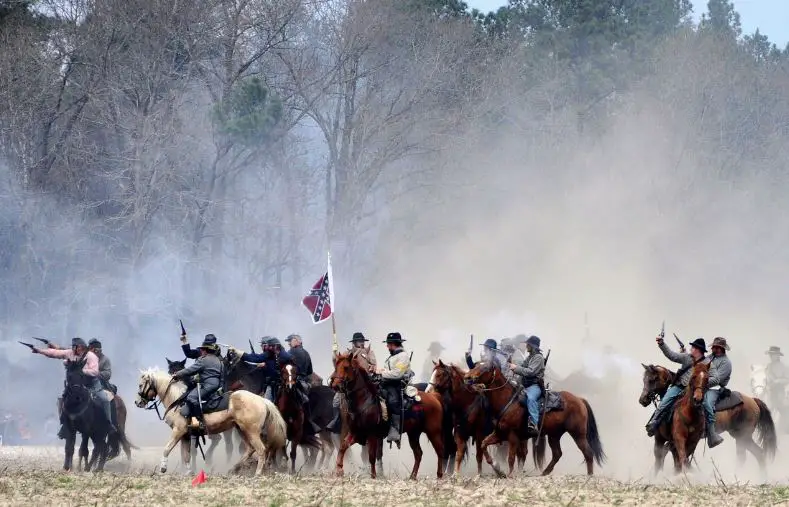The Importance of Studying History: From Civil War to Modern World War

History is more than just a collection of dates and facts; it is a gateway to understanding our past, present, and future. In this article, we will delve into “The Importance of Studying History: From Civil to Modern World War.” By the end of this journey, you will appreciate why history is not just a subject in school but a treasure trove of knowledge waiting to be explored.
The Importance of Studying History
History is not a mere recounting of past events. It is a vital key to comprehending the world we live in today. Here, we will explore the various aspects that make studying history so essential.
Understanding Our Origins
History allows us to trace our roots, understand our ancestors’ struggles, and acknowledge their achievements. It gives us a sense of belonging, helping us appreciate the diverse tapestry of human civilization.
Learning from Past Mistakes
The mistakes and triumphs of the past offer invaluable lessons for the present and future. History enables us to avoid the pitfalls that our predecessors fell into and adopt the strategies that brought them success.
Gaining a Global Perspective
Studying history transcends geographical boundaries. It provides insights into different cultures, societies, and their interactions throughout the ages. This global perspective fosters empathy and broadens our horizons.
Developing Critical Thinking
Analyzing historical events requires critical thinking. By assessing various sources, interpreting facts, and forming conclusions, history sharpens our ability to think critically and make informed decisions.
Preserving Cultural Heritage
History serves as a custodian of our cultural heritage. It safeguards the art, literature, and traditions that define our identities. Without history, these treasures would be lost to time.
Fostering Resilience
History showcases human resilience in the face of adversity. It reminds us that even in the darkest times, people have found the strength to rebuild and innovate.
From Civil Wars to Modern World War
Now that we understand the importance of studying history, let’s embark on a journey through some of the most pivotal moments in history.
The American Civil War: A Nation Divided
The American Civil War tore a nation apart but ultimately led to the abolition of slavery and the preservation of the United States as we know it today.
For a comprehensive understanding of the history of the US Civil War, it’s essential to explore various perspectives. Diving into different viewpoints, even beyond the direct topic of the Civil War, enriches one’s grasp of this pivotal period. Access to diverse essays can be a valuable resource for this purpose. Various essay databases and popular platforms, such as EduBirdie, offer a wealth of sample essays. To deepen your comprehension of this historical era, don’t hesitate to check civil war essay and discover the multifaceted aspects and insights they provide. This multifaceted approach can be an enlightening journey through history.
World War I: The Great War
World War I, also known as the Great War, forever altered the course of history. It led to the reconfiguration of global power dynamics and set the stage for World War II.
World War II: A World in Flames
World War II, the most devastating conflict in history, resulted in the establishment of the United Nations and the beginning of the modern world order.
The Cold War: Ideological Struggles
The Cold War pitted the United States and the Soviet Union in a geopolitical struggle that defined international relations for decades.
The Modern World: Challenges and Opportunities
The study of history brings us to the present day, where we face a multitude of global challenges and opportunities. From technological advancements to addressing climate change, history equips us to navigate these complex issues.
Frequently Asked Questions
Why is studying history important?
Studying history is crucial because it helps us understand our past, learn from past mistakes, gain a global perspective, develop critical thinking skills, preserve cultural heritage, and foster resilience.
How can history benefit me personally?
History provides insights into human behavior, decision-making, and societal structures. This knowledge can be applied to personal growth, decision-making, and problem-solving.
Can history offer guidance for the future?
Absolutely. History’s lessons can help us make informed choices, avoid repeating past mistakes, and navigate the challenges and opportunities of the modern world.
What are some famous historical events?
Some famous historical events include the American Civil War, World War I, World War II, the Cold War, and numerous others that have shaped the course of human history.
How can I make history more engaging to study?
Engage with history through storytelling, visiting historical sites, and seeking out diverse perspectives. Personal connections to historical events can make the subject more enjoyable.
Are there career opportunities in history-related fields?
Yes, careers in history-related fields include historians, educators, archivists, museum curators, and researchers. History knowledge can also be valuable in various other professions.
“The Importance of Studying History: From Civil to Modern World War” is undeniable. It empowers us to learn from the past, understand the present, and shape a better future. By embracing history, we not only gain knowledge but also develop the critical skills needed to thrive in the modern world. So, let’s embark on this historical journey together and unlock the lessons that history has to offer.
